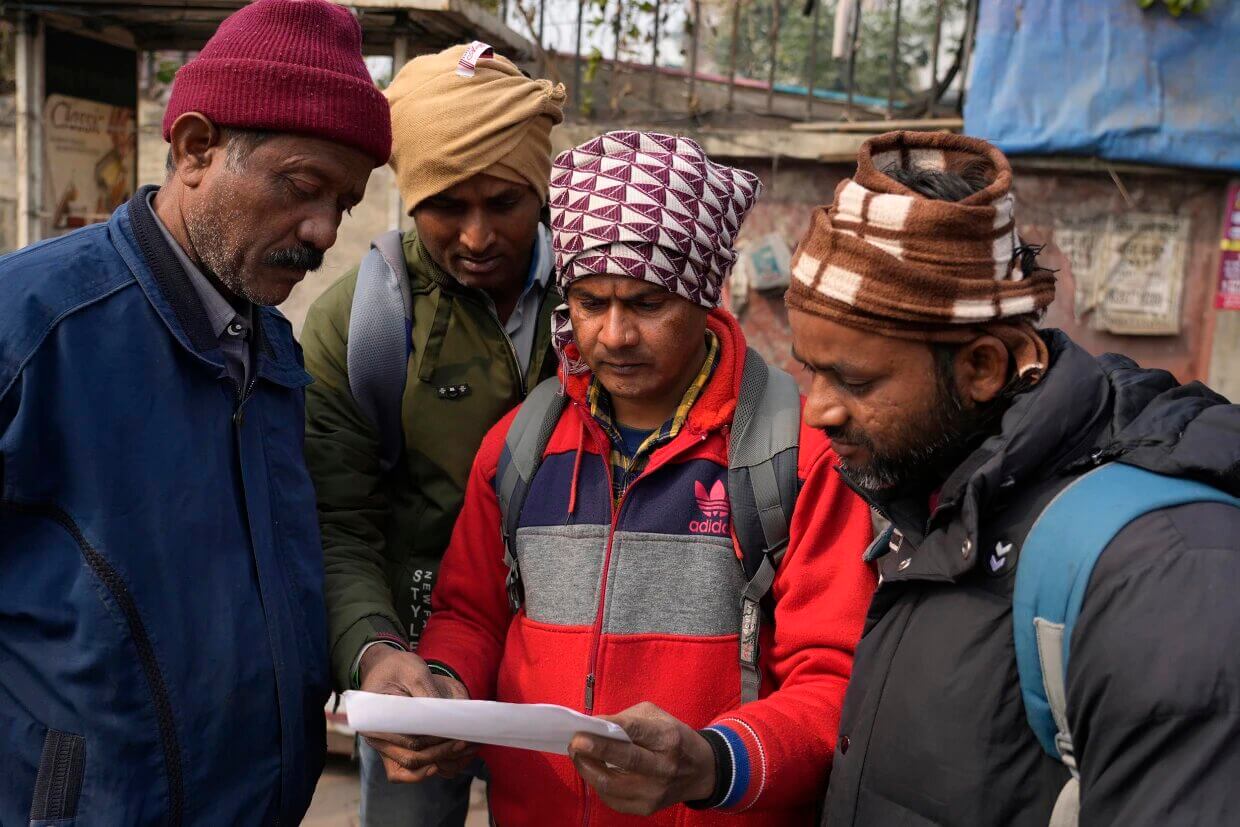Israel’s government announced on Sunday that it would bring in 65,000 foreign workers from India, Sri Lanka, and Uzbekistan to resume construction, which was halted since 7 October when Palestinian workers were sent home following Hamas’ attack on Israel.
Israeli fields, construction sites, and hotels are among the sectors struggling with a manpower shortages since the war began and some foreign migrant workers left fearing for their safety.
Thousands of young Indian men have been queuing up outside recruiting centers in the northern Indian states of Haryana and Uttar Pradesh in recent weeks, hoping to secure employment in Israel. https://t.co/3RamDA21ub
— The Diplomat (@Diplomat_APAC) February 2, 2024
Israel Hiring Indian Workers
Israel, a country of around nine million people, is significantly relies on foreign labour in industries such as agriculture, construction, and caregiving. That need has become even more crucial in the wake of the Israel-Hamas War, which has killed about 27,000 people in Gaza.
According to the finance ministry, the overall labour deficit costs the Israeli economy more than $800 million each month, prompting Israel to begin recruiting new workers from countries such as India and Sri Lanka. Shay Pauzner, deputy director-general of the Israel Builders Association said that the Israeli government is hiring 10,000 construction workers in the first stage, including carpenters, ironworkers, plasterers, and tile fitters, with an expected total of 60,000 in the coming months.
Officials have established recruitment centres in several Indian cities, including Delhi and Chennai. Applicants for the highly competitive process are required to have at least three years of experience and pass an exam. Pauzner added that 6,000 personnel have already been selected, with some arriving in Israel as early as mid-February. He expected that India will become Israel’s largest source of foreign construction workers in the future.
Recruitment negotiations with India, which has fostered closer ties with Israel under Indian PM Narendra Modi’s leadership, began even before the war started. According to India’s foreign ministry, there are currently 18,000 Indians working in Israel, the majority of whom are caretakers.
Indian officials have defended the recruiting, claiming Israel’s labour laws are “robust.” Indian Foreign Ministry spokesperson Randhir Jaiswal told reporters earlier this month, “We are very conscious of our responsibility to provide security and safety to our people who are abroad.”
India, the world’s most populous country, struggles to generate work for its 1.4 billion people, reports claim. Although the general unemployment rate has been declining, the World Bank estimates that the unemployment rate for those aged 15 to 24 was 17.9% in 2022.
Israel is recruiting workers from India who are drawn by the chance to earn higher wages than they could at home, even if it means working in a war zone.
— NBC News (@NBCNews) February 4, 2024
But Indian trade unions want it to stop, arguing it supports Israeli military actions in Gaza. https://t.co/c8HpSdVuUJ
Palestinians Replaced by Foreign Workers
Palestinians from Gaza and the West Bank are now mostly banned from entering Israel, with work permits withdrawn for security reasons. The labour shortage has particularly impacted Israel’s construction industry. According to the Palestinian Central Bureau of Statistics, two-thirds of the more than 150,000 Palestinians working in Israel were in construction before the war.
Representatives from both the agriculture and construction sectors have urged the government to start allowing Palestinians in, or hire additional foreign workers, as construction has been largely halted and farmers are complaining about severe shortages. Furthermore, the Agriculture Ministry said that 10,000 out of 29,900 Thai farm workers have left Israel since the war began; although over 3,000 have returned since then. Another 10,000-20,000 Palestinian seasonal workers were stopped from entering Israel.
“The construction business is based on Palestinians. About a third of our workers were Palestinians before the war,” Pauzner claimed. He stated that neither the Israeli government nor the builders’ organisation has imposed any religious restrictions on applicants, adding that workers are being recruited from Uzbekistan, a Muslim-majority country in Central Asia.
According to the proposal, Israel plans to recruit 80,000 workers from other nations, primarily from Asia, for jobs in construction and agriculture. The Kan public broadcaster said that Tel Aviv will arrange for the entry of 25,500 workers from Sri Lanka, 20,000 from China, 17,000 from India, 13,000 from Thailand, and 6,000 from Moldova. It noted that the plan, however, would require forging agreements with these countries and discussions about the terms of the job before it could be implemented.
As per reports, the high-level security cabinet has postponed voting on a plan that would allow Palestinian labourers to enter Israel from the West Bank for work. PM Benjamin Netanyahu, who seemed to be in favour of the idea, did not put it to a vote due to reported disputes among security cabinet ministers, particularly hardline settlement supporters who claim doing so would pose a significant threat.

